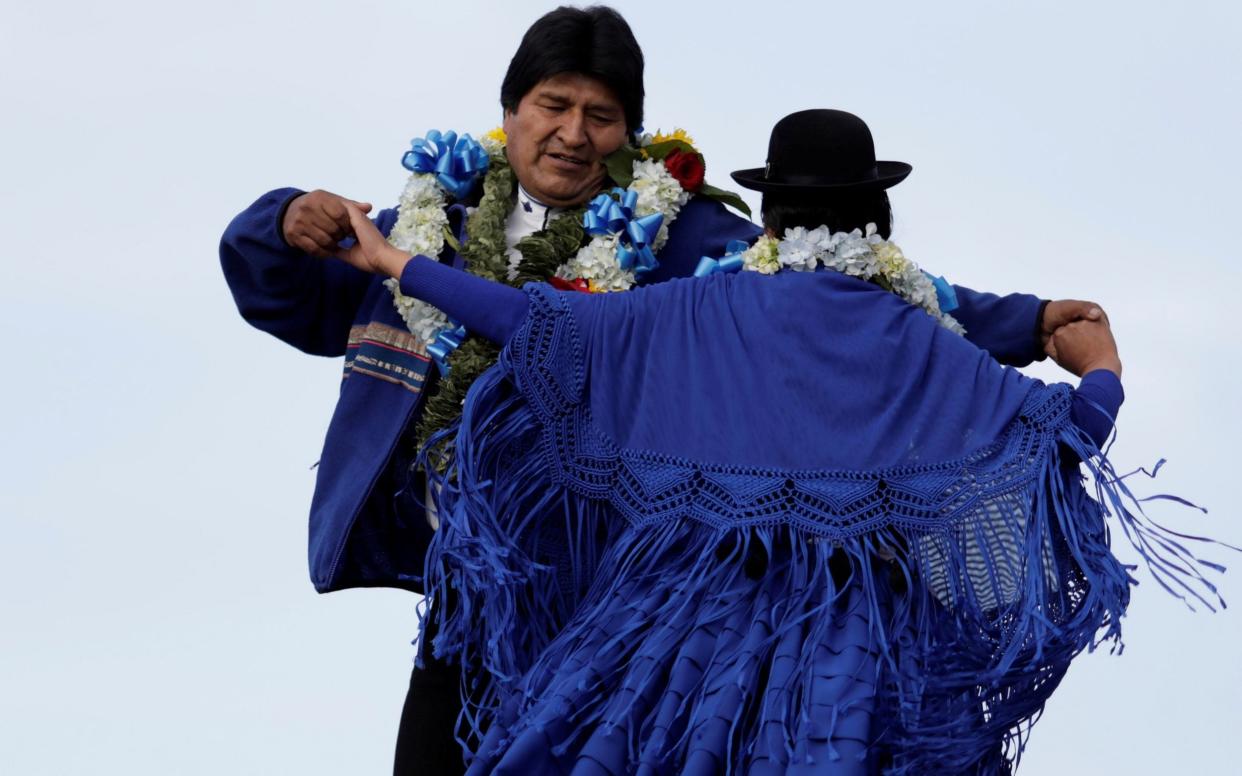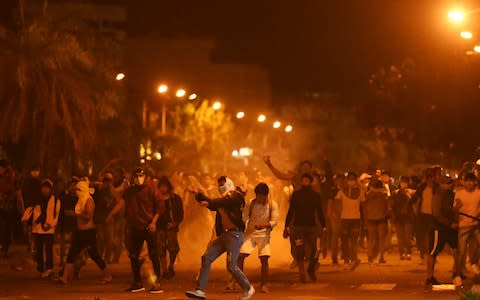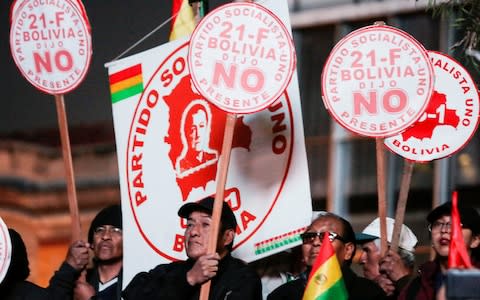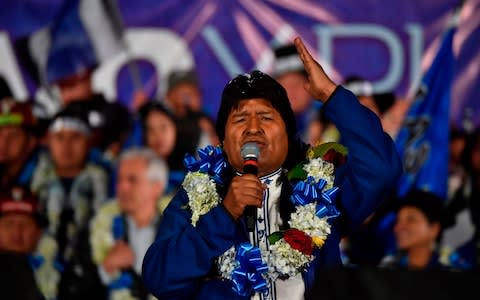Separatists come back to bite Evo Morales as Bolivia's Leftist leader ignores referendum for fourth term

When wildfires swept through the Chiquitano forest in eastern Bolivia earlier this year, Luzdina Mercado García, 58, fought back with what little resources she had.
“We put out the flames with buckets of water, we didn’t stop, we slept in the forest," she says. It wasn’t enough. Her own house was consumed by the flames.
"We saw our lands burned, we saw birds and animals burned.”
The start of the summer rains has extinguished the worst of the forest fires on the fringes of the Amazon that captured the global media’s attention in September.
But the political repercussions could be serious for Bolivia’s socialist president Evo Morales in today’s election. Latin America’s longest serving head of state, Mr Morales used to rub shoulders with fellow Leftist presidents including Venezuela’s Hugo Chavez, Brazil’s Lula de Silva and Ecuador’s Rafael Correa.
But through generous social programs and prudent economic policy he has outlasted them all and, until recently, looked a certainty to win an unprecedented fourth term.

Now the election is on a knife-edge as he stands accused of causing the fires by stripping back regulation that allowed the forests of Eastern Bolivia to be exploited and burned - and for failing to deal with the emergency.
Joining an indigenous march towards Santa Cruz in Bolivia's rural east, Ms García told The Sunday Telegraph: “I feel furious, the fires are the fault of the government, which sends its people to burn the land and settle there." “The mayor gave us no support, not a single gallon of water.”
Policies designed to promote the settlement and cultivation of the forest allowed Mr Morales’ MAS party to win the region around Santa Cruz - traditionally a Right-wing stronghold – in the last election.
Those same policies could cost him this time around. Santa Cruz - Bolivia’s largest and richest city – has a strong independent streak. In 2008, two years after Mr Morales came to power, the city led four other departments – collectively known as the Media Luna – in demanding regional autonomy. Deadly protests erupted.
The following April the government raided a city centre hotel to shoot dead a group - including an Irishman - accused of plotting to assassinate Mr Morales. To this day many Cruceños consider the operation a false flag attack carried out to silence rebellion. Dozens of prominent local leaders were charged with terrorism and many more fled.
The leftover members of the Santa Cruz elite reached a swift truce with the government, welcoming government decrees that made it easier to develop slash-and-burn agriculture projects.

In the years since, however, Bolivia has undergone an unprecedented economic and social change. Mr Morales' governing MAS party nationalised the gas industry and boosted social spending.
The economy grew at a steady rate of around five per cent, well above the regional average, poverty fell from 60 per cent to 35 per cent and illiteracy was eradicated.
The country’s indigenous groups – large sections of which had been neglected under previous governments – became actively engaged in politics. In the 2015 elections MAS representative Adriana Salvatierra, then aged just 26, was elected senator for Santa Cruz as her party won the department with 49 per cent of the vote.
“We won because we delivered on our promise to democratise wealth through nationalisation and economic growth,” she says from a campaign office adorned with a large pop-art portrait of Che Guevara, the hero of the Cuban revolution who was captured and executed close to Santa Cruz in 1967.
“More than three million Bolivians have left poverty and joined the middle classes.”
However, the fires that destroyed more than four million hectares of arable and dry forest in the department in August and September have stoked popular discontent, and the opposition are reenergised. The last polls gave Mr Morales just 24.6 per cent of voter intention.
On October 5, over one million people attended the cabildo, a mass protest in Santa Cruz. The opposition have long criticised Mr Morales’ growing autocratic tendencies.

Last year the courts – loyal to the president – overturned a referendum result in which Bolivian’s had narrowly voted to prevent him running for a fourth time.
However, the forest fires have added a new element. Cruceños blame them a rash of decrees introduced by Morales that make it easier for associations of “colonisers” to burn and settle forest lands and to pardon illegal deforestation.
According to Luis Fernando Camacho, president of the Comité Santa Cruz the civil society group that organised the cabildo, the government’s motive has always been to overwhelm rural municipalities with MAS-voting settlers from the Andean region.
“They’ve come from the interior to occupy, to damage and then leave,” he says.
Tensions between inhabitants of the eastern lowlands and the Andean populations are long-standing but the impact of the fires may convince poor, rural voters such as Mr Garcia – Morale’s natural base – to vote against him. Camacho also used the opportunity to return the topic of federalism to the table.
“We don’t want to separate [from Bolivia] nor keep all the resources for ourselves but give the regions the power to manage their own development plans.”
Currently polling at 36 per cent nationwide, and requiring 40 per cent plus a 10 point margin to avoid a second round, Morales faces his toughest campaign yet. Were he to return to power, the MAS is likely to be in a minority position in the legislature.
On Wednesday Morales closed his Santa Cruz campaign at a rally in north of the city telling his blue and black clad supporters “We will keep defeating the separatists and those who would sell the country.” Inside the blue and black clad MAS supporters chanted “Evo, our friend, the people are with you.”
Outside riot police broke up an opposition protest with teargas. “I voted for Evo twice before but he’s been president too long” says Rudy Calizaya a 28-year-old student whose parents migrated from the highlands.
“He has done great things for indigenous Bolivians, but it is time for him to go.”

 Yahoo News
Yahoo News 
